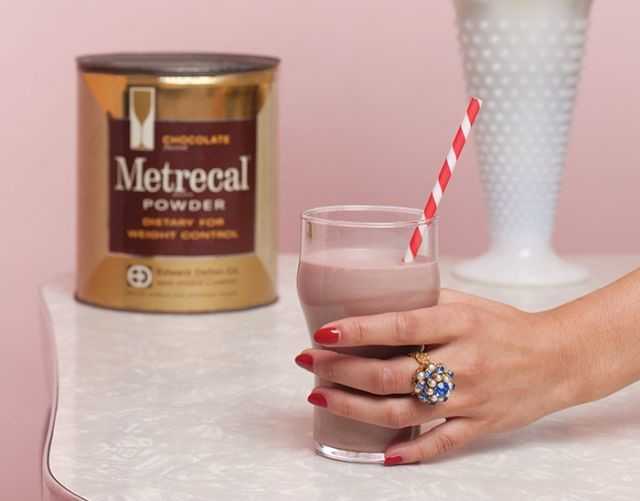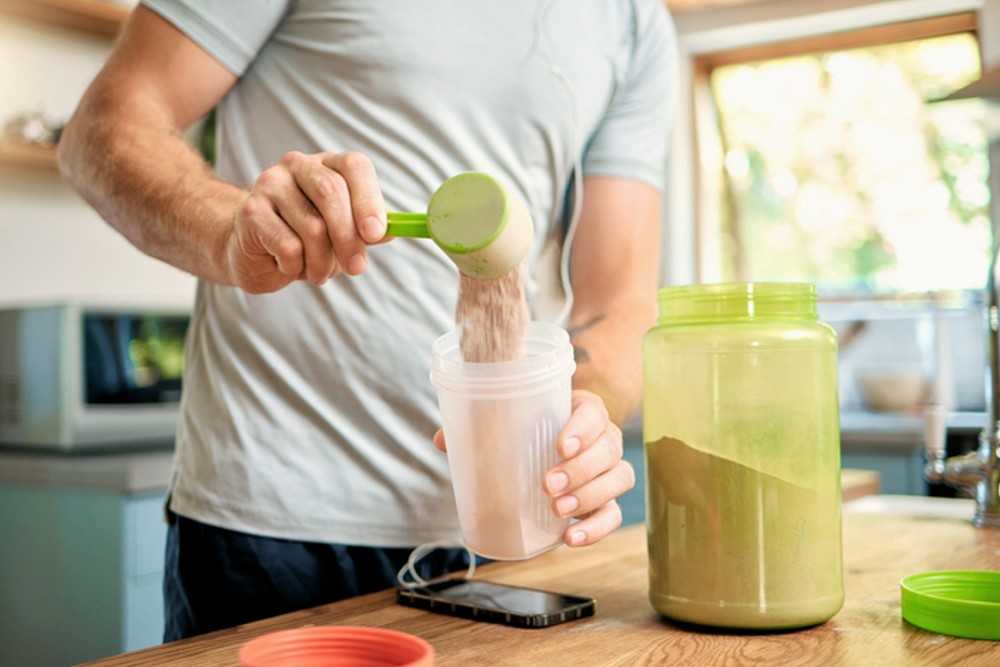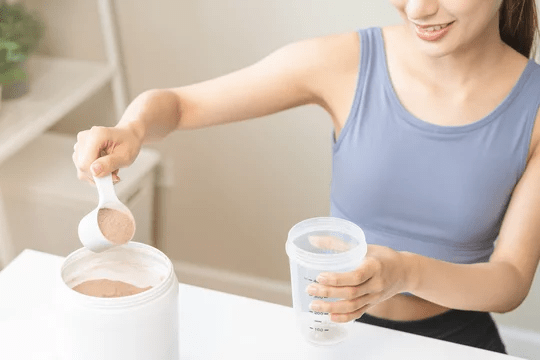The concept of ‘meal replacement shakes’ actually came from the US, when in 1959, a company called Metrecal, introduced the first ever meal replacement shakes for dieters. The company became an instant success, and sold products worth $40 million in the first year and $100 million by the end of 1961. The market turned hot and by 1963 there were more than 700 meal replacement products on the market.

As the name suggests, a ‘meal replacement shake’ is there for the same purpose, i.e. to replace your meal. These meal replacement/weight loss shakes are generally low calorie shakes (app. 200-400cal/shake) with most vitamins and minerals added to them. In fact, that’s the sole reason for them to show results in weight loss.
Some meal replacement shakes are prescribed for weight loss, others for gains, and some are medically prescribed in certain medical cases, where solid meal consumption is not possible, generally for a short term period.
Now there are certain parts of our population which may benefit a lot from the short-term consumption of such meal replacement shakes:
- astronauts,
- soldiers on special missions
- medically ill individuals, who are not able to digest solid food for some time,
- people who have limited access to any kind of food, for e.g. natural disaster survivors, extremely poor people etc.
- people who have a psychological issue,
- elder individuals
- people struggling from an eating disorder
- athletes or sportsmen, who need a larger amount of food per day, but aren’t able to eat a lot of solid food.
But all these individuals consume such shakes for a strong reason, and mostly for a short period of time. The problem is use of these products for the purpose of weight loss.
Most of these weight loss/meal replacement shakes are sold under the MLM (Multi-Level Marketing) schemes (pyramid selling schemes). Some are sold by individual supplement or FMCG companies too, because they have great demand in the market, and everyone wants a piece of the pie.
These MLM companies have a proper program in place to lure the customers into not just buying one product, but multiple ones at a time. They always have their own exclusive distributors to sell you such products. This creates an aura of exclusivity and limited availability.
When you meet their distributor, they explain you the various programs and schemes being offered by the company. These programs consists of not just the weight loss shakes, but a lot of other supplements.
Then there are supplements, which are sold to you with the promise of detox and reduction in water retention. Again, these supplements are absolutely worthless and have absolutely no evidence that they work or are needed for the purpose of weight/fat loss. This is not over, as more and more supplements keep getting added, depending on your paying capacity.
These companies tell you a simple trick of consuming their shakes and supplements, generally but replacing two meals with the shake, or in simple terms, just eat less, but don’t eat, have our low calorie shake. This is along with multiple times, you would be advised to take their fat burners, and other detox supplements.

The biggest issue that these companies and their products are absolutely unregulated. Because of this there have been multiple cases of serious liver toxicity issues, with the use of these products (https://bit.ly/3e8Vivo, https://bit.ly/34FqZcL, https://bit.ly/31SE0Oc, https://bit.ly/37WNkoa)
These drinks are a multimillion dollar industry. The global meal replacement products market size is valued at USD 25 billion by 2025 and is expected to grow at a compound annual growth rate (CAGR) of 6.5%.
Hectic lifestyle coupled with the rising demand for tasty, high-quality, and healthy food products is anticipated to drive the market growth. Additionally, long working hours and a rising number of people leading a sedentary lifestyle are expected to drive the market for ready-to-eat meal replacement products.
However, the truth behind the use of these shakes for the purpose of weight loss is something I would never advice, and there are some research based, and other common sense reasons behind it:
- Whenever you try and opt for the weight loss programs by MLM companies selling you these shakes, you are exposed to Rosy lines and attractive ‘before-after’ pics. The companies promote it as a perfect alternative of a meal, which can be taken as per your convenience, especially when you don’t have the time to prepare a meal.
All the before-after pics which you see, are simply due to the effect they got from eating less calories, and cutting down junk; 2 reasons every diet in the world will work for a short time. Meal replacement shakes offer ‘a solution in a can’, a quick-fix in glossy packaging. These solutions appeal to so many people who are lost, confused, searching for faster results, and have no idea of nutrition science.
- These shakes, cost a bomb. As they don’t come alone. They come with a full package of meal replacement products, to be consumed for a very long time. Such shakes are way too costly for most people to consume in the long run, and for most even in the short term.
- You will find a lot of studies supporting the fact, that these weight loss/meal replacement shakes are an effective strategy for weight loss. Surely they would be, as the simple thing they are doing is reducing a large portion of calories from your diet, and cutting off junk. That’s it. There is no magic here.
In a 2019 meta-analysis study, reviewed 23 studies with over 7880 participants, which compared the effectiveness of meal replacements for weight loss in people who followed a meal replacement diet with a weight-loss plan that didn’t include meal replacements.
After 1 year of following a meal replacement plan, lost 1.4kg more than people using other diets after one year. This means, that after spending thousands of rupees on such shakes, the real difference found, after 1 full year was just 1.4kg. Had the subjects done a little extra workout, they would have seen a much bigger difference, along with tons of other physiological & psychological benefits.
Further the study found that, those who followed a meal-replacement diet, combined with support from a dietitian or healthcare professional, lost 2.2-3.9kg more. This means, there is still an additional expense of a dietician.

- It Makes You Hungrier – another major issue with long term intake of such weight loss shakes is that it makes you more hungrier and does not curb the appetite, thus increasing cravings.
A 2008 study, assessed the influences of liquid vs solid meal replacement products on postprandial appetite ratings and subsequent food intake in healthy older adults.
The results indicated that meal replacement products in liquid and solid form do not elicit comparable appetitive and ingestive behaviour responses and that meal replacement products in liquid form blunt the postprandial decline in hunger and increase subsequent food intake in older adults.
- Typically, most of these commercially available shakes contain sugar and artificial sweeteners, artificial flavours, colours, stabilizers, and hydrogenated oils, along with a lot of cheap fillers and preservatives. Some shakes do contain fibre, but the amount is significantly less than the amounts found in whole foods like fruits, vegetables and legumes.
Your body needs to eat real foods, not supplements. The word ‘supplement’ means additional to food/diet, not instead of it. The reason they can never replace whole foods is because they may have some vitamins and minerals, but not all of the nutrients real food has, like enzymes, antioxidants, and phytonutrients (plant nutrients) that work synergistically with each other. Replacing healthy whole meals, deliberately for the purpose of weight loss, is not called supplementation.
THE CONCLUSION
Such shakes are not a long-term weight loss strategy. Long term sustainable weight loss is more psychological than physiological.
The aim should be to have a sustainable long-term healthy lifestyle. You have to form healthy habits of eating quality food and controlled quantity, working our regularly, moving more, sleeping adequately and managing your stress levels. Weight loss is not just one aspect.

Remember, food is not a punishment. People have been scared to death by these companies from eating normal food. Food is a pleasure of life. It gives body nourishment. Whole foods have a vital function in the body, and it can never be replaced by anything which is not food, or which simply resembles food.
Supplements have their place in the world. And in today’s hectic life, filled with adulterated food, high quality supplements must be added to provide adequate nutrition and prevent nutritional deficiencies.
I am not at all against the use of these shakes, and as we saw that these shakes can be a great addition to the diet of a lot of people. However, the terms ‘meal-replacement’ or ‘weight loss shakes’, itself sounds negative, for the very purpose of these shakes is neither to replace meal, nor weight loss.
I would suggest a new and very simplistic term for it – “Liquid Meal”. It’s a great name which means what it sounds. A meal which is in liquid form, and can be used for specific purpose.
Of all the above cases, where liquid meals would be helpful, the ones I would recommend, being a fitness & nutrition coach, are the athletes and elderly. Rest of the cases, are generally under medical recommendations.

I have come across many male & female athletes, who undergo extremely hard training, and need a large amount of calories for optimal recovery. Also, these calories must be a proper balance between carbohydrates, fats and proteins, and at the same time, other micronutrients.
On the other hand, elderly, due to their age, aren’t able to take in optimal amount of food, and risk developing nutritional deficiencies. For them too, addition of a liquid meal would be a very convenient method of administering all the needed nutrients.
But, in either of the athletes or elderly, the ‘liquid meal’ should not aim at replacing solid meals altogether. It should act as a supplement only, what it is designed to do, i.e. supplementing a diet, not replacing them.



